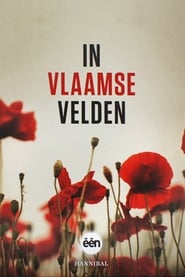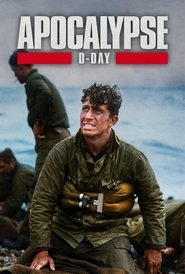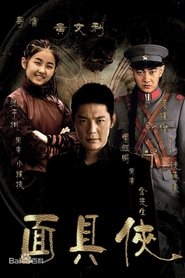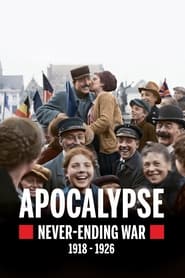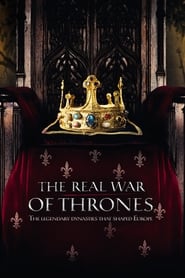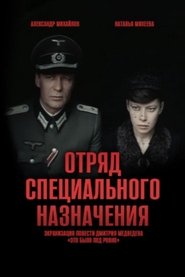War Politics TV Series - Page 55
-
星火云雾街
2018
星火云雾街
2018
-
In Flanders Fields
2014
In Flanders Fields
2014
star 8.3The story of the Boesman family's attempt to survive in the city of Ghent during the first world war focusing on each of the five family member's different experiences -
Secret Agent
2001
Secret Agent
2001
Documentary series recounting the exploits of the Special Operations Executive in World War Two. -
Apocalypse: D-Day
2024
Apocalypse: D-Day
2024
star 8.26 June 1944. A titanic fleet launched an assault on the beaches of Normandy. Objective: to liberate Europe from Hitler's yoke. Drawing on the lessons learned from the Dieppe raid in August 1942, the mission was a spectacular success. -
The Battle of Port Arthur: Will Love Die?
1981
An epic of love and death that depicts how soldiers and ordinary people lived and fought during the Russo-Japanese War, when Japan's very existence was at stake in the face of the great power of Russia. -
Top of the Hill
1989
Top of the Hill
1989
star 5Top of the Hill is a short-lived political drama series aired by CBS as part of its 1989 fall lineup. -
Apostle
2008
Apostle
2008
star 6.4At the beginning of the war, the Germans throw their saboteur into the USSR. The landing is unsuccessful - the spy is captured by the NKVD. When trying to escape, a saboteur who turned out to be a Russian thief in law, accidentally remaining in the occupied territory, dies. In order to find the other spies involved in the operation, the security officers have to turn to the criminal's twin brother, a rural teacher. He takes the place of the deceased in the German intelligence network and enters into a deadly game... -
Hitler's Circle of Evil
2018
star 7.2Surviving power struggles, betrayals and plots, Hitler's inner circle of Nazi leaders seizes control of Germany and designs its disastrous future. -
面具侠
2015
面具侠
2015
-
地下地上
2009
-
And Quiet Flows the Don
2015
star 3.8The action begins in 1912. The heroes of the painting - neighbors, villagers, Cossacks from the Tatarsky farm of the village of Vyoshenskaya - have lived on this land for centuries, they are connected by kinship, friendship, love, common labor and military service. But this durable and self-sufficient world with its unique way of life, habits and a special system of views and values is collapsing under the onslaught of bloody turmoil and revolution. Don is divided by hatred. The seemingly immutable age-old foundations of Don life - land, farm, family, military duty - are dissolving in the crucible of fratricidal war. The Melekhov, Korshunov, and Astakhov families are involved in the cycle of military and political events. -
Naši synovia
1975
Naši synovia
1975
-
Revolution!
2021
Revolution!
2021
star 8This is the “embedded” French Revolution that we want to share: an exceptional, immersive experience seen through cameras that dive into the heart of history, following its every jolt. It's the story of the fall of the world's most glorious, most powerful ad most ancient monarchy. -
Apocalypse: Never-Ending War (1918-1926)
2018
star 7.8November 11, 1918. The world emerges from the most horrific conflict ever known. While leaders of the victorious countries design a new world order, traumatized societies struggle to find their footing. In the aftermath of war the Russian, German, Austro-Hungarian and Ottoman Empires fall apart, currencies fluctuate wildly, and vast numbers of refugees flee misery. Before long, age-old hatreds, fears, and resentments resurface and drive the world to the brink of a new apocalypse. -
The Real War of Thrones
2017
star 7.1In the turbulent formative centuries of early Europe, power-hungry family dynasties fought for domination of the continent. -
Special Forces Squad
1987
-
L'État de Grace
2006
L'État de Grace
2006
star 1L'État de Grace was a French television show that featured France's first female president. -
Great Yamato No. Zero
2004
star 7This story starts in the year 3199, when a mighty enemy attacks the Milky Way from a neighboring galaxy. The enemy engages the combined forces of the Milky Way, an Alliance of many stellar nations, and defeats them one after another. The remaining Milky Way Alliance forces are reduced to just six fleets. After the Alliance headquarters is destroyed, and when the collapse of the central Milky Way Alliance is imminent, the Great Yamato Zero surprises everyone and embarks on a mission to assist the Milky Way Alliance in one last great battle. -
黎明绝杀
2012
黎明绝杀
2012
-
Kids of Courage
2019
Kids of Courage
2019
star 8This outstanding and sensitive drama series tells a young and family audience the stories of children who lived through a most difficult era in recent history - and who grew with its challenges.

